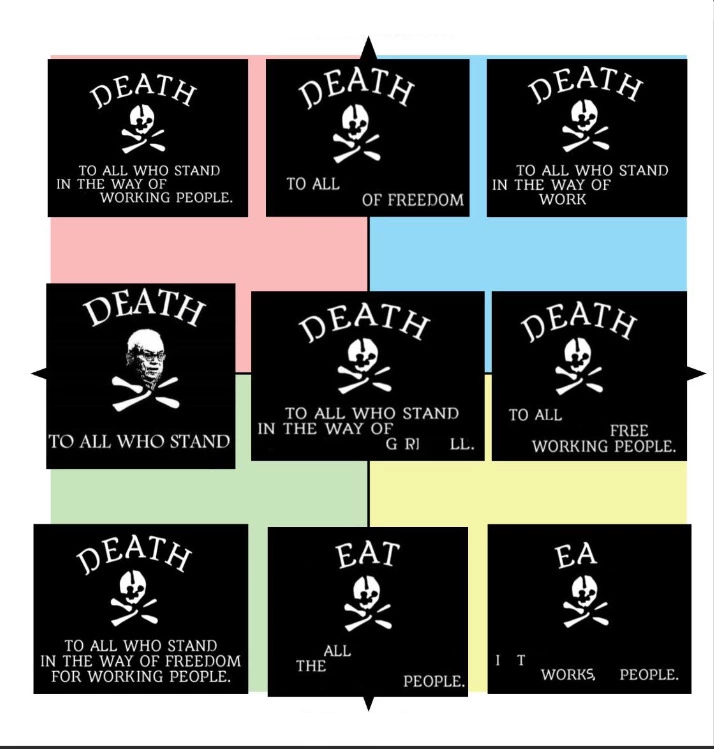anarchism

Anarchism is a social movement that seeks liberation from oppressive systems of control including but not limited to the state, capitalism, racism, sexism, speciesism, and religion. Anarchists advocate a self-managed, classless, stateless society without borders, bosses, or rulers where everyone takes collective responsibility for the health and prosperity of themselves and the environment.
Theory
Introductory Anarchist Theory
- Mutual Aid: A Factor of Evolution by Pyotr Kropotkin
- Anarchism and Other Essays by Emma Goldman
- Anarchy Works by Peter Genderloos
- Anarchism: A Beginner's Guide by Ruth Kinna
- Anarchism and Its Aspirations by Cindy Milstein
- Anarchy In Action by Colin Ward
- On Anarchism by Noam Chomsky & Nathan Schneider
- Anarchy by Errico Malatesta
Anarcho-Capitalism
Discord Legacy A collaborative doc of books and other materials compiled by the #anarchism channel on the Discord, containing texts and materials for all sorts of tendencies and affinities.
The Theory List :) https://hackmd.io/AJzzPSyIQz-BRxfY3fKBig?view Feel free to make an account and edit to your hearts content, or just DM me your suggestions ^~^ - The_Dawn
view the rest of the comments
I live in a former east bloc state (hungary) and the only communist party we have left is explicitly against LGBTQ people and immigration. In the meantime unions are in shambles because all union activity was heavily vetted by the police so workers now don't even care to try (of course 30 years of neoliberal pacification also contributed but there was basically zero resistance even in the 90's because they were all gutted. So i am a bit sceptic about it, but again, i am happy to be proven wrong, i would be a supporter if such a humane system would rise and i watch with great admiration the latin american projects (and also defend for example Cuba against radlib losers who think it's the most authoritarian state ever).
One thought morsel to your original question though: If we got closer to all those things through ways of anarchistic organizing, wouldn't that be better too even if it ultimately fails to achieve all the goals?
Hm, yeah, I can definitely see your perspective. I've only interacted with members of, for example, Cuba and China's communist parties; so that paints the picture for me in my mind of what a communist party looks like.
I think to answer your question though, I guess I focus on two things;
A) A clear path of continuation, explicitly bound institutions which allow the next generation to pick up the mantle of running whatever revolution, and this requires institutions in my experience
B) An ability to survive through crisis, for example, if an anarchist project were able to bring huge progress in a short period of time, what use would it be if that project was then crushed by better organized and better funded imperialists or capitalists within a matter of years if not months?
I guess for me, I see that positive change only happens over long periods of time. The projects and solutions we have to environmental decay, economic democracy, etc all require these two things which socialist projects (not all, unfortunately, but enough to learn from) have shown an ability to do. If we don't engage with what's worked historically and build and improve that, we might as well be theorizing about how many angels can dance on the head of a pin.